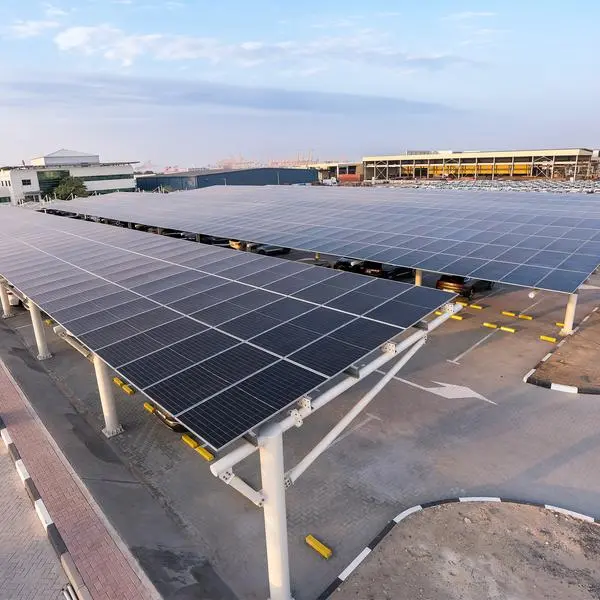PHOTO
RAM Ratings sees Malaysia as a leading and sustainable green finance centre, based on the country’s solid foundation of more than 3 decades’ well-orchestrated government and regulatory initiatives. “Green finance is akin to icing on Malaysia’s bond market cake,” Promod Dass, Deputy CEO of RAM Ratings, highlighted during the Emerging Markets Green Bond Development panel discussion at the Climate Bonds Initiative’s 2018 Annual Conference, held in London on 20 March 2018.
As at end-2017, Malaysia’s bond market as a proportion of GDP – a good measure of relative size - was the third largest in Asia after Japan and South Korea, based on data from Asian Development Bank (ADB). The country’s corporate bonds as a proportion of the entire bond market - another notable measure of market development – stood at 48% (based on ADB data) ranks it second after South Korea’s 59%. Malaysia also has the distinction of being the world’s largest sukuk market. During the Roundtable on Mobilising Financial Centres for Green Bonds – Where to next?, Promod remarked, “It is important to establish a vibrant bond market as a cornerstone, so that a sustainable green bond market can be rapidly built upon it. Malaysia is such an example.”
Malaysia’s well-regulated USD318 billion bond and sukuk market shows ample domestic capacity and capability. It has a diverse range of issuers, well-heeled institutional investors, banks, credit rating agencies, a bond pricing agency and a financial guarantee institution as well as other relevant service providers. This allows both domestic and foreign issuers to viably tap ringgit long-term funds. “The convergence of responsible, green and Islamic finance is a sweet spot for Malaysia,” highlighted Promod.
Malaysia is committed to the United Nations’ (UN) Sustainable Development Goals and is also party to tackling climate change as a Paris Agreement signatory. Chapter 6: Pursuing Green Growth for Sustainability and Resilience of the 11th Malaysia Plan (2016-2020) articulates Malaysia’s green strategy. In this context, Securities Commission Malaysia’s (SC) Sustainable and Responsible Investment (SRI) Sukuk Framework - issued in 2014 - has paved the way for the bond market. The government’s strategic investment fund, Khazanah Nasional Berhad, took the lead in 2015 and pioneered the RAM-rated Sukuk Ihsan (the world’s first SRI sukuk). The Malaysian stock exchange – Bursa Malaysia, a member of the Sustainable Stock Exchanges Initiative - established the FTSE4Good Bursa Malaysia Index in 2014. In another progressive step, all listed companies in Bursa Malaysia are required to include sustainability disclosures in annual reports on a staggered basis spanning the 2016-2018 period according to the company’s market capitalisation. All these measures have primed the corporate sector for the green finance evolution.
The SC played a key role in the establishment of the ASEAN Green Bonds Standards (issued on 8 November 2017), through the ASEAN Capital Market Forum’s collaboration with the International Capital Market Association. This effort will channel green finance to further fuel ASEAN’s growth and create a new ASEAN fixed-income asset class. To envigorate SRI funds in Malaysia, the SC issued Guidelines on SRI Funds on 19 December 2017. This enables funds to be designated as SRI funds, and will widen the range of SRI products in the market while attracting investors to the SRI segment.
Meanwhile, Bank Negara Malaysia (BNM) has also detailed strategies to strengthen the roles and impact of Islamic banking institutions in a sustainable financial ecosystem. BNM had guided the sector through its Strategy Paper on Value-based Intermediation (published on 20 July 2017); this was finalised on 22 March 2018. To spur the green market, the Malaysian government has also introduced tax incentives, the Green Technology Financing Scheme and the Green SRI Sukuk Grant Scheme.
In January 2017, the World Bank, BNM and the SC formed a Technical Working Group to accelerate Malaysia’s green finance thrust. This had led to the issuance of the RAM-rated world’s first green SRI sukuk by Tadau Energy Sdn Bhd on 28 July 2017. Permodalan Nasional Berhad’s Merdeka ASEAN Green SRI Sukuk had heralded another market first. According to publicly available data from the SC, six green issues valued at USD1.06 billion were lodged between 6 June 2017 and 20 March 2018 (to date, 5 green issuers accounting for a total of USD1 billion have successfully issued). “The quantum and rapid flow of green issues since 2017 put Malaysia prominently on the global map of green financial centres,” observed Promod.
On 1 February 2017 and 7 February 2018, respectively, Khazanah and government pension fund KWAP became signatories to the UN-supported Principles for Responsible Investment (PRI). This represents a tipping point for green finance in Malaysia, as the recent move could prompt many other Malaysian institutional investors and institutions to follow suit.
RAM is also an active contributor to sustainability and green finance, both in Malaysia and abroad. On 26 May 2016, RAM joined the global line-up of six pioneer credit rating agency signatories to PRI’s Statement on ESG in Credit Ratings. RAM’s sister company, RAM Consultancy Services Sdn Bhd, is the first ASEAN-based provider of sustainability ratings and second opinions on green bonds and sukuk.
Media contact
Padthma Subbiah
(603) 7628 1162
© Press Release 2018



















